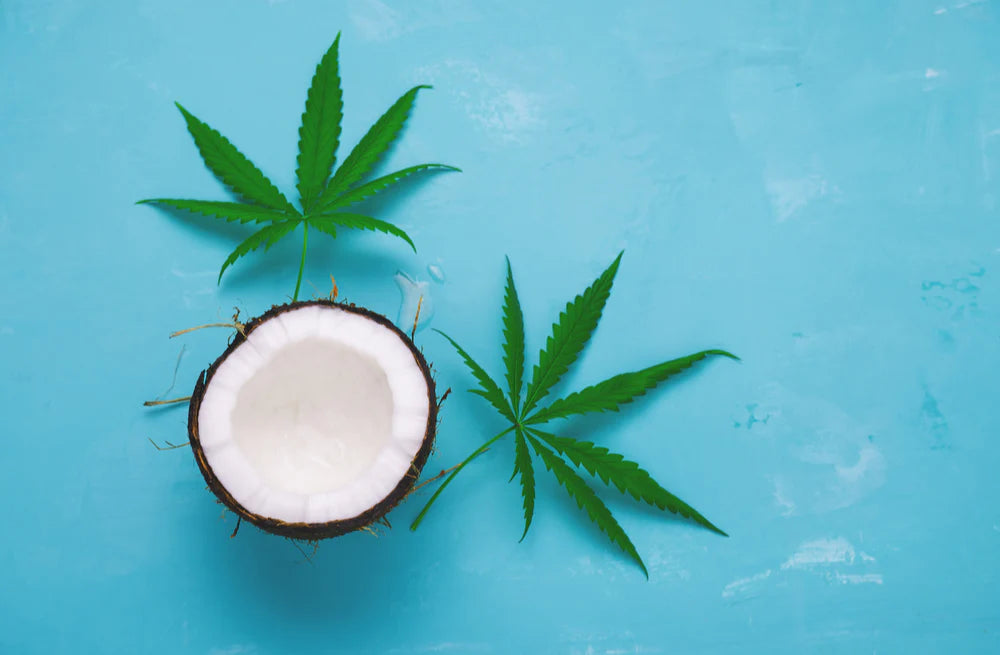Medium-chain triglyceride (MCT) oil is a flavorless ingredient that acts as a carrier oil while also offering a neutral odor and long shelf life. Widely used for its therapeutic properties1 and antimicrobial and anti-inflammatory effects, MCT oil may be the ideal ingredient to elevate a brand’s CBD products.
As MCTs have become essential dietary supplement and personal care additives worldwide and consumers learn their benefits, an excellent opportunity exists for manufacturers in the CBD industry to invest in this ingredient. MCTs can be incorporated as a high-quality carrier or emollient in the formulation of natural CBD cosmetics and dietary supplements.
What MCTs are
As health trends have grown across the U.S. and around the world, MCTs have skyrocketed in popularity. Composed of 6 to 12 carbons that are fatty-acid esters of glycerol, their short length enables the body to absorb the oil efficiently. MCTs passively diffuse from the gastrointestinal (GI) tract into the portal vein without requiring the modification that long-chain fatty acids (LCFAs) or very-LCFAs do.
The potential benefits of MCTs
Clinical research around MCT oil surrounds health benefits such as aiding in weight loss,5 energy6 and heart health, and potentially playing a role in alleviating inflammation and mitigating other issues.8
Among MCT oil’s areas of influence, weight loss ranks high on the list because of the extensive amount of research. In clinical trials, MCT oil has been shown to promote the feeling of fullness, to help reduce body weight and waist circumference, to reduce or prevent obesity, and to help the body burn extra calories.
Excess body weight can contribute to heart disease, so by aiding weight loss and with the potential to help reduce inflammation, MCT oil may bolster heart health. A clinical trial around MCT oil consumption and metabolic profile suggested MCT oil is a crucial ingredient to help reduce the risk factors for heart disease, with the potential to aid in maintaining healthy blood pressure.
Research has also indicated a promising role for MCTs with specific issues, including epilepsy and autism. One study explored the ability of MCTs to offer increased seizure control. Another study showed positive improvements for people with autism who incorporated MCTs into their diet, tracking results over six months. Other studies have assessed MCTs ability to influence memory loss and help patients in an Alzheimer’s disease population.
Although more clinical research is needed to further prove any links between MCT oil and benefitting inflammation or other adverse indications, it stands to reason that MCT would be a positive addition to the diet. It provides an immediate source of power for the human body through quick absorption, allowing for faster conversion to energy, according to a clinical trial led by researchers Peter Schonfeld and Lech Wojtczak.
The perfect pairing
CBD is a chemical compound derived from the hemp plant, one of 113 cannabinoids found in cannabis plants. CBD is growing in popularity in the U.S. and around the world, but CBD can not produce an impact unless it is accessible to the human body, which means a carrier oil can be essential for absorption. In addition to helping increase the bioavailability of CBD, MCT oil can improve the stability of a formulation by making it easier to produce nanoemulsions with small droplet sizes.
Increasing the bioavailability and therefore the absorption rate of CBD is essential to creating an effective product. MCTs advantage is providing a healthy oil that is not stored as body fat, but rather burned for energy at the liver or preferentially converted to beneficial ketone bodies, providing sustained energy, glycemic control, weight management, and cognitive benefits. These benefits may be additive or possibly synergistic (greater than the sum of the parts) with CBD. MCTs can increase bioavailability of CBD by increasing solubilization in liquid products and in the gut.
The stage of transfer from absorption site in the gut to the bloodstream is critical. The CBD that is able to pass the gastrointestinal barrier is filtered in the liver and then distributed throughout the body where it interacts with the CB1 and CB2 receptors in the body’s endocannabinoid system. Studies show that consuming CBD oil with fatty acids such as MCT’s can help bypass the first phase of metabolism and increases how much CBD is absorbed into the cells during ingestion.
Oral bioavailability of CBD on its own is very low (13–19%) due to: limited aqueous solubility. In a study comparing CBD bioavailability in rats it was found that the “co-administration of dietary lipids or pharmaceutical lipid excipients may substantially increase the systemic exposure to orally administered cannabis or cannabis based medicines. Our data suggest that the primary mechanism of the increased absorption of cannabinoids in the presence of lipids is intestinal lymphatic transport.
